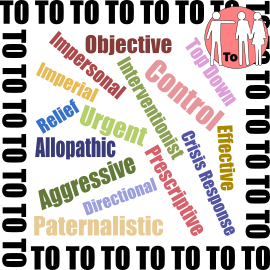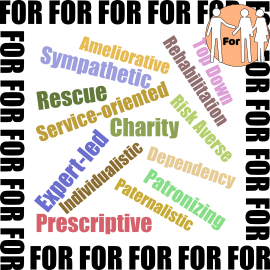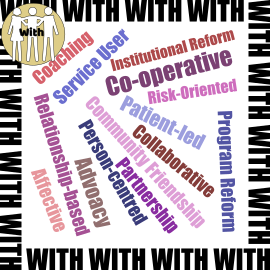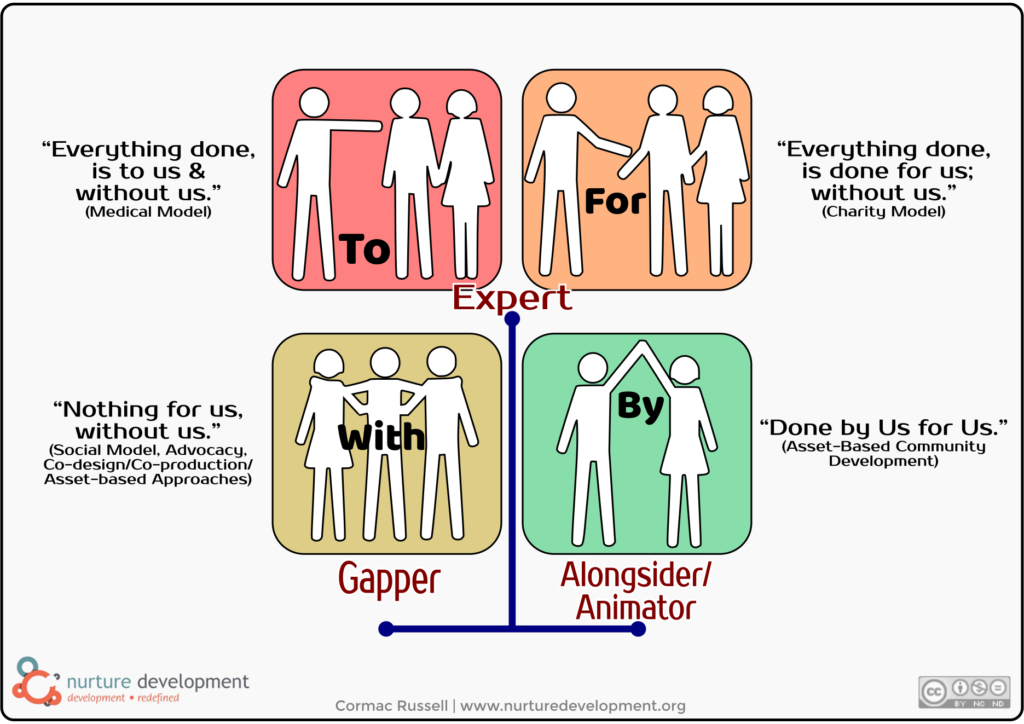
Bridging The Gap – Expert to Alongsider
 |
ToForms a Service Model Service and Provision experts taking the roles of Administrator or Provider. Imposing an ethos of efficiency, public service, prioritising delivery of municipal services according to a national and often distant agenda. Often felt within community as decided without us to be provided to us. It’s a model that typifies building inescapable dependency. |
 |
ForForms a Charity Model Typically having the roles of Benefactor or Allocator offering Relief or Rehabilitation. Applying an ethos of charity, benevolence, delivering donations to those recognised and regarded as being in need. Often felt within community as chosen for us then divided for us. It’s a model that results in building dependency upon resources that can be lost at any point in the future. |
 |
WithForms an Advocacy Model Typically having the roles of Supporter or Advocator offering Representation or Promotion. Approached with an ethos of social justice, campaigning, championing for the under represented. Often felt within community as consulted with us on what to do with us. It’s a model that can hold value in bridging the gap between experts and community (see section The Role of the Gapper) but can also fail to embed sustainable change. |
 |
ByForms an ABCD Approach People doing the roles of Alongsider (see Part 1 and Part 2 of Paradox of the Alongsider) or Animator that offer help within the community to realise a community created vision. Approached with a knowledge that valuing gifts, and building connection enable capacities and strengths to emerge. Getting to the point where people of communities feel this is – done by us for us – is what success looks like. |
Done to the people;
Done for the people;
Done with the people;
Done •by• the people.
This is the path of transitions from institutional dependence to community interdependence. What courage is required to effect this change and enlarge the ‘by the people’ space? Of central importance for practitioners is serving while walking backwards. This is not a withdrawal, failure or abandonment but a valuable step aside to a new position from where a paradigm of nurturing abundance can take over from managing scarcity.
Rashid Mhar & Cormac Russell

